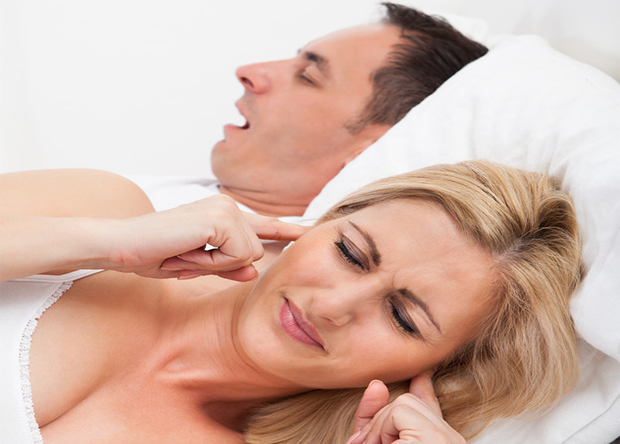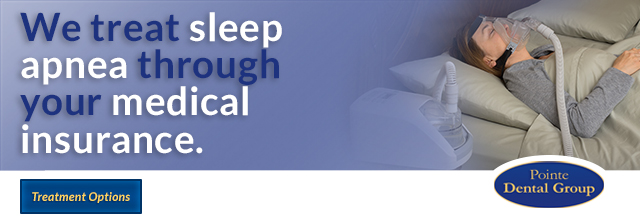
Do you wake up in the morning feeling tired even after you’ve gotten a good night’s sleep? If you suffer from sleep apnea, that sleep may not have been as “good” as you’d hoped. In fact, it may actually be detrimental to your health. Sleep experts estimate that nearly 1 in 5 adults suffer from sleep apnea, and that staggering statistic brings with it some very serious consequences.
What is Sleep Apnea?
Sleep apnea is a complex disorder, and it’s not surprising people have many questions about it. Sleep apnea is a chronic condition in which a person’s airway is blocked when they sleep. It occurs when something interrupts the breathing process, cutting off oxygen to the brain and causing an individual to snore or even gasp for air. There are two types of sleep apnea:
- Obstructive sleep apnea (OSA): The more common of the two forms of apnea, it is caused by a blockage of the airway, usually when the soft tissue in the back of the throat collapses during sleep. OSA can cause sufferers to stop breathing hundreds of times a night for anywhere from a few seconds to more than a minute.
- Central sleep apnea: Unlike OSA, the airway is not blocked, but the brain fails to signal the muscles to breathe, due to a problem in the respiratory control center.
How is It Treated?
There are a variety of ways to treat sleep apnea. The most well-known way is through a Continuous Positive Airway Pressure (CPAP) machine. A CPAP machine supplies constant and steady air pressure to a patient through a mask or nose piece attached to a small pressurizing device. The pressurized air improves airflow to the patient while he or she sleeps, preventing apnea.
For other patients, a dentist may recommend a specialized oral appliance similar to mouth guards worn by athletes. The appliance works by repositioning the lower jaw, tongue, soft palate, and uvula to decrease or remove airway obstructions and improve breathing during sleep.
Beyond the basic information about sleep apnea and its treatment, we’ve compiled a list of the top 5 questions people ask about the disorder. Read on to learn more about this potentially harmful medical condition.
5 FAQs About Sleep Apnea
1. What’s the difference between snoring and sleep apnea?
Simple, periodic snoring is caused by a partial obstruction of the upper airways, which may be annoying, but not harmful. However, those with a total obstruction will often have loud snoring followed by brief periods of silence, which can mean they are not breathing. Very loud, consistent snoring is also an indication of sleep apnea and should be investigated.
2. How can I tell if I suffer from sleep apnea?
Sleep apnea is assessed by means of an all-night sleep study, called a polysomnogram, during which a clinician monitors a patient’s brain activity, eye movement, muscle activity, breathing and heart rate, and oxygen levels. A special facility is required for the study.
However, sleep apnea has many characteristic symptoms. In addition to the characteristic loud snoring or snoring followed by silence or gasping, sleep apnea sufferers may also have:
- A dry mouth or sore throat when they wake up
- Morning headache
- Difficulty staying asleep (insomnia)
- Excessive daytime sleepiness (hypersomnia)
- Attention problems
- Irritability
Having one or more of the symptoms is a clue that you should talk to your health care provider about scheduling a sleep study.
3. Does sleep apnea only affect older people?
Doctors estimate that more than 18 million Americans have sleep apnea. It’s more common after age 40, but it can affect people of all ages. You’re more likely to have the condition if you’re overweight, a man, African-American, or Latino. The disorder also tends to run in families.
OSA is common in children, affecting as many as 1 in 10. In most cases, the symptoms are mild and the child eventually outgrows it. But some may start to have behavior troubles or serious medical problems because of it; in these cases, parents or caregivers should seek medical advice.
4. Is sleep apnea dangerous?
Sleep apnea can lead to more than a loss of a good night’s sleep. Recent studies have linked it to heart disease, high blood pressure, strokes, type 2 diabetes, and weight gain. In addition, the extreme fatigue it can cause can lead to automobile or on-the-job accidents.
5. Will it go away?
The answer to that question is a resounding maybe. Some people who have suffered from mild sleep apnea have found when they made lifestyle changes – like exercising and losing weight – their sleep apnea was no longer a problem. Others have found that oral appliances or CPAP treatments can eliminate sleep apnea. In some cases, surgery may be necessary. People with abnormal jaw structure or an enlarged tongue or tonsils have found relief often find relief only after a surgical procedure.
Pointe Dental Group Specializes in Sleep Apnea Treatment!
If you have more questions about sleep apnea, or suspect you may be suffering from it, we’re here to help. One of our dental specialists, Dr. Paul Van Walleghem, specializes in dental sleep medicine and recently became an American Board of Dental Sleep Medicine (ABDSM) Diplomate. ABDSM is the board for the leading national organization for dentists who treat snoring and obstructive sleep apnea with oral appliance therapy, an effective alternative treatment to the CPAP machine.
If you suspect you have sleep apnea and would like to explore dental treatments, contact us today!
- Grosse Pointe Farms (313) 881-2480
- Shelby Township (586) 803-8300.
Don’t miss a thing! Connect with us on Facebook.
Sleep Apnea Dentist in SE Michigan
Have a question about the connection between oral health and sleep apnea? Pointe Dental Group is here to help you understand more about sleep apnea!
Contact Pointe Dental’s Sleep Apnea Dentist in SE Michigan at either of our convenient locations:
Grosse Pointe Farms
18342 Mack Avenue
Grosse Pointe Farms, MI 48236
(313) 881-2480
Shelby Township
50505 Schoenherr Rd # 170
Shelby Township, MI 48315
(586) 803-8300
